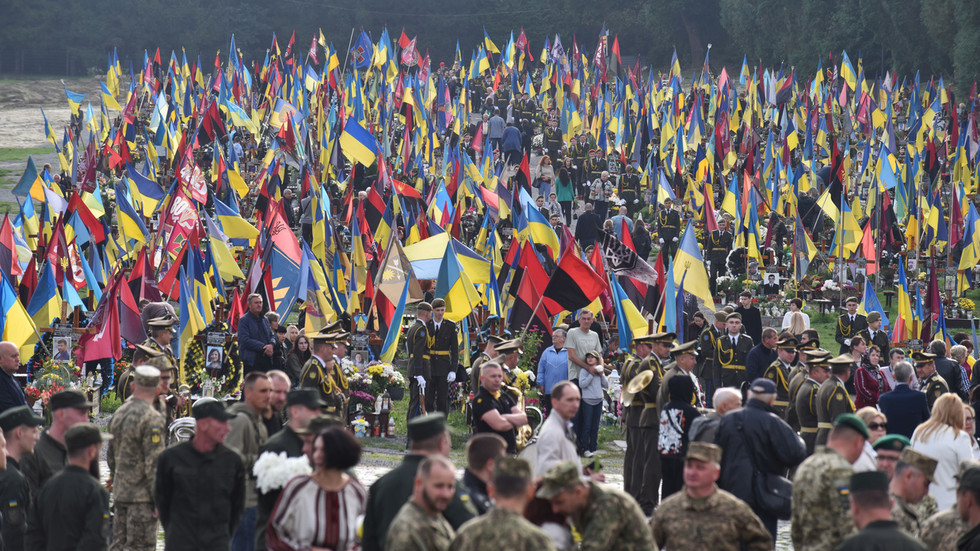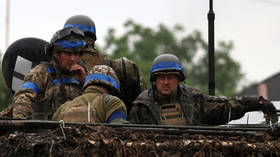
Kiev’s refusal to negotiate with Moscow has only caused the country heavy battlefield casualties, Aleksey Arestovich says

FILE PHOTO. A view of crowds of mourners at the graves of Ukrainian soldiers at the Lychakiv cemetery in Lvov, Ukraine. © Getty Images / SOPA Images / LightRocket / Pavlo Palamarchuk
Ukraine has lost up to 300,000 soldiers during its conflict with Russia, Aleksey Arestovich, a former aide to President Vladimir Zelensky, has claimed.
Arestovich made the revelation on Friday while speaking to journalist Yulia Latynina via video link. The former presidential aide was addressing the recent admission made by top Ukrainian MP David Arakhamia, who said the Istanbul talks between Moscow and Kiev were derailed by then-UK PM Boris Johnson, who urged Ukraine to “just continue fighting” instead of attempting to reach a deal with Russia.
“I was a member of the Istanbul negotiating team, but even I don’t know how it happened that we decided to break off the Istanbul [talks],” Arestovich stated.
The initiatives floated during the Istanbul talks were actually “very good,” he admitted, claiming that Ukraine’s neutrality and its non-alignment with NATO was a “red line” for Moscow.
Refusing to negotiate, however, has only resulted in heavy casualties, while its prospects to join NATO still remain dubious, he suggested.
“Where is NATO? Does it accept us or not? And will it accept us? … Then the 200 thousand [Ukrainian servicemen] or whatever, 300 thousand, would still be alive,” the ex-aide said.

The remarks come as Russian Defense Minister Sergey Shoigu revealed Moscow’s latest estimates on Kiev’s casualties. Speaking during a ministerial meeting on Friday, Shoigu claimed that the Ukrainian military has lost more than 125,000 troops and around 16,000 military hardware pieces since the beginning of its botched counteroffensive, which started in early June. The country’s efforts, as well as Western aid, have not yielded any tangible result, the minister added.
“The total mobilization in Ukraine, delivery of Western arms, and deployment of strategic reserves by the Ukrainian command have not changed the situation on the battlefield,” Shoigu explained. “Those desperate actions simply increased the losses of the Ukrainian armed forces.”
In recent weeks, top Ukrainian officials admitted the counteroffensive had failed to reach the desired outcome, and they seemed to shift blame for the failure on each other. Early in November, for instance, Valery Zaluzhny, Ukraine’s top general, said the battlefield situation had reached a “stalemate,” with Kiev unlikely to achieve a breakthrough unless it received a wonder-weapon of sorts.
The assessment has been vehemently rejected by Zelensky, who insisted the counteroffensive was still making progress. In an interview with AP published on Friday, however, Zelensky finally admitted that it had failed, stating that he considers the fact that his country’s troops are not retreating at the moment a “satisfying” enough result.




